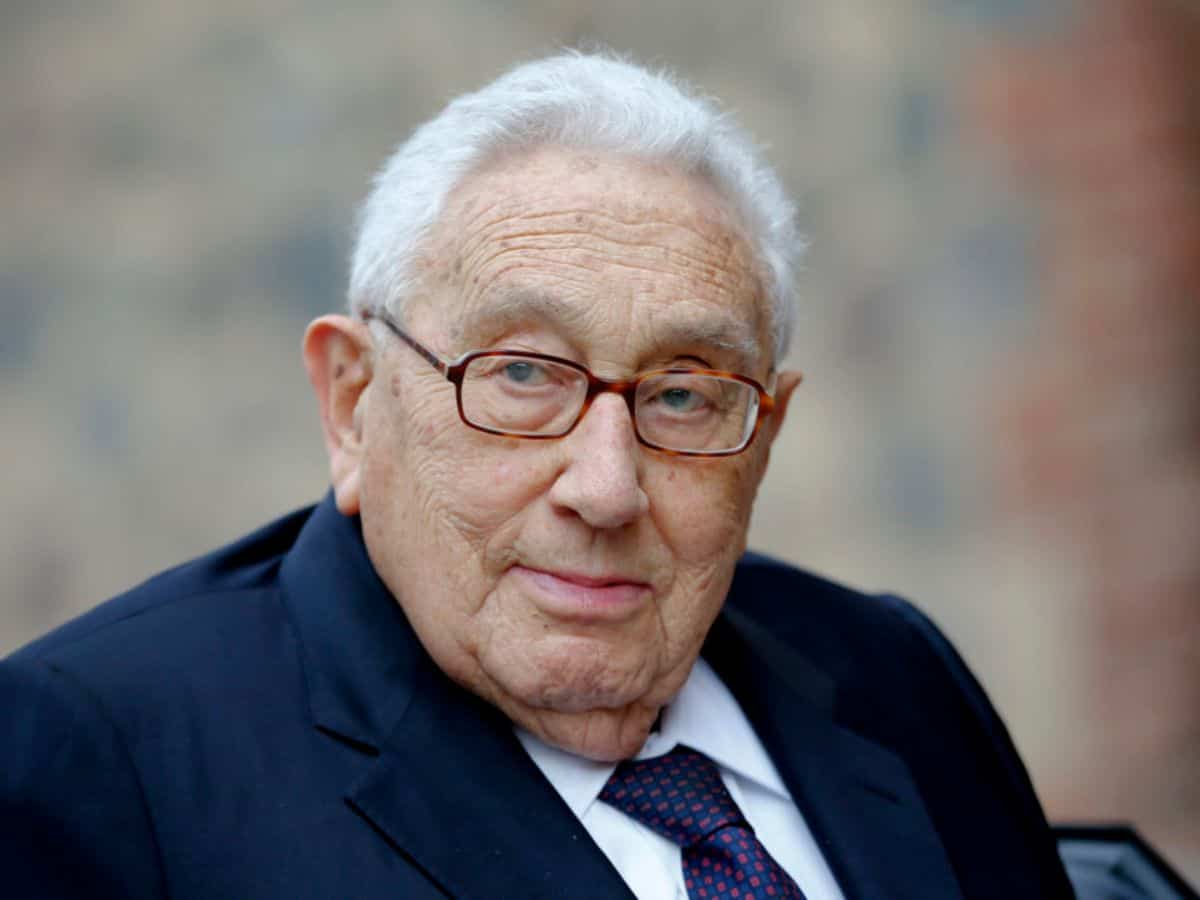
Washington: Henry Kissinger, the 56th US Secretary of State known to be as one of the most influential foreign policy figures in American history, has passed away at the age of 100.
Without providing a cause of death, his consulting firm Kissinger Associates said that he died on Wednesday at his home in Connecticut, CNN reported.
Born in Germany in 1923, he is survived by his wife of nearly 50 years, Nancy Maginnes Kissinger, two children by his first marriage, David and Elizabeth, and five grandchildren.
Kissinger became a naturalised US citizen in 1943 before serving in World War II.
Before his government service, he served on the faculty at Harvard University, where he ran the International Seminar from 1952 to 1969.
Kissinger began consulting with the State Department and Pentagon on national security matters before serving as National Security Adviser (January 1969–November 1975) and then Secretary of State (September 1973–January 1977) to former President Richard Nixon.
Henry Kissinger was synonymous with US foreign policy in the 1970s.
He received a Nobel Peace Prize for helping arrange the end of American military involvement in the Vietnam War and is credited with secret diplomacy that helped then President Nixon open communist China to the US and the West, highlighted by the latter’s visit to the country in 1972.
But he was also reviled by many over the bombing of Cambodia during the Vietnam War that led to the rise of the genocidal Khmer Rouge regime and for his support of a coup against a democratic government in Chile.
In the Middle East, Kissinger performed what came to be known as “shuttle diplomacy” to separate Israeli and Arab forces after the fallout of the 1973 Yom Kippur War.
His “detente” approach to US-Soviet relations, which helped relax tensions and led to several arms control agreements, largely guided American posture until the Reagan era.
Though his era as a high-powered architect of US foreign policy waned with the decline of Nixon amid the Watergate scandal, Kissinger continued to be an independent mover and shaker whose musings on diplomacy always found an ear.
Nixon’s successor, Gerald Ford, retained Kissinger as the Secretary of State.
He ultimately left office in 1977.
After 9/11, the President George W. Bush asked him to chair the investigation into the attacks on New York and Washington, but he was forced to stand down within weeks after refusing to reveal his consultancy’s list of clients and answer questions about conflicts of interest.
He held meetings with President Bush and Vice-President Dick Cheney, to advise them over policy in Iraq following the 2003 invasion.
Kissinger had also briefed Donald Trump on foreign affairs after his election in 2017. suggesting, among other things, acceptance of Russian President Vladimir Putin’s occupation of Ukraine’s Crimea.
When he turned 100 in 2023, he had changed his view on Ukraine.
After the February 2022 Russian invasion, Kissinger argued that Ukraine should join NATO after peace was secured.
Throughout his lifetime, Kissinger was the recipient of a number of awards and recognitions.
In 1945, he was awarded a Bronze Star from the US Army for meritorious service.
He received the Nobel Peace Prize in 1973, the same year a Gallup Poll of Americans listed him as the most admired person in the world.
Kissinger was also awarded the nation’s highest civilian honor, the Presidential Medal of Freedom, in 1977 and the Medal of Liberty, given one time to 10 foreign-born American leaders, in 1986.



